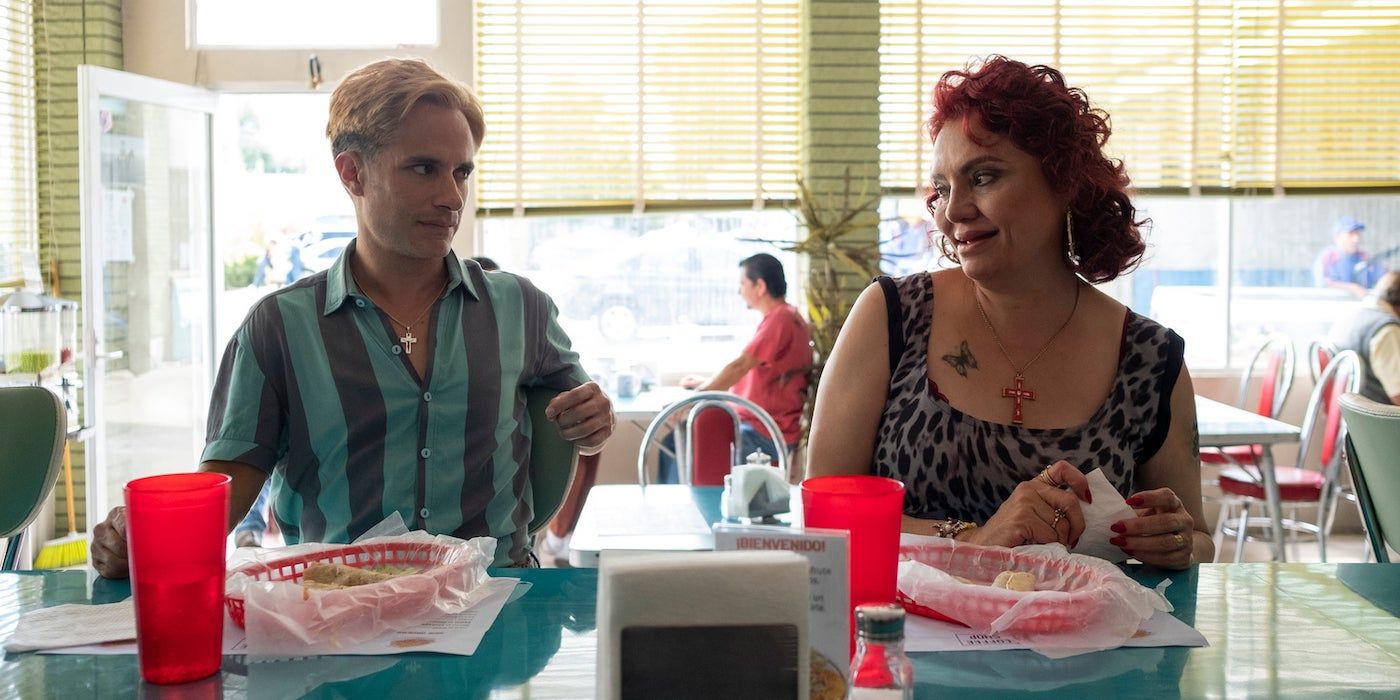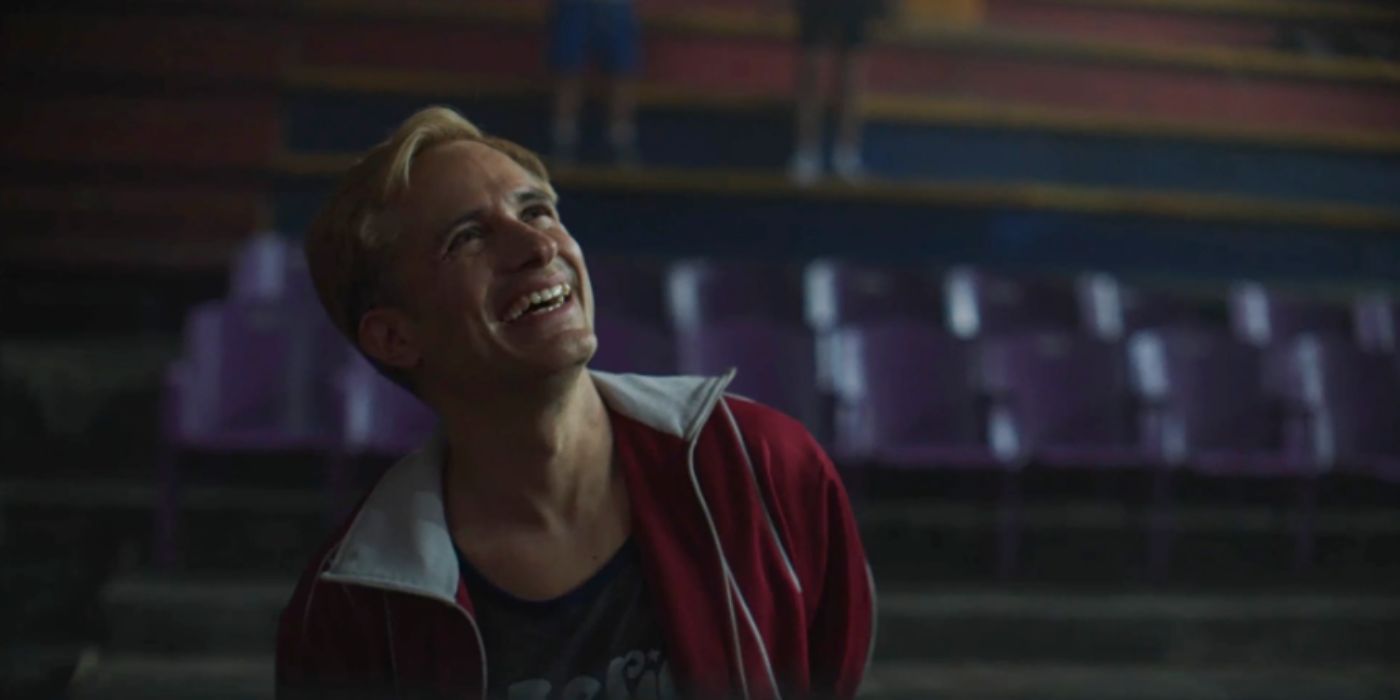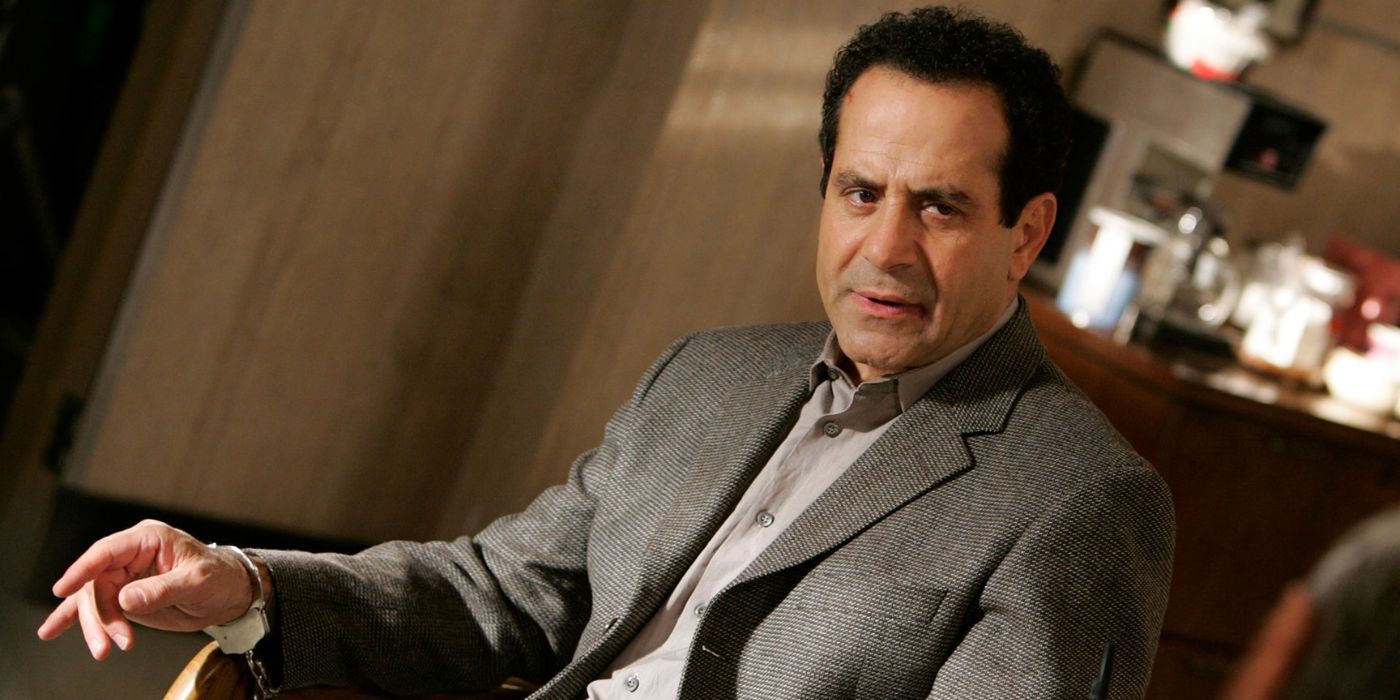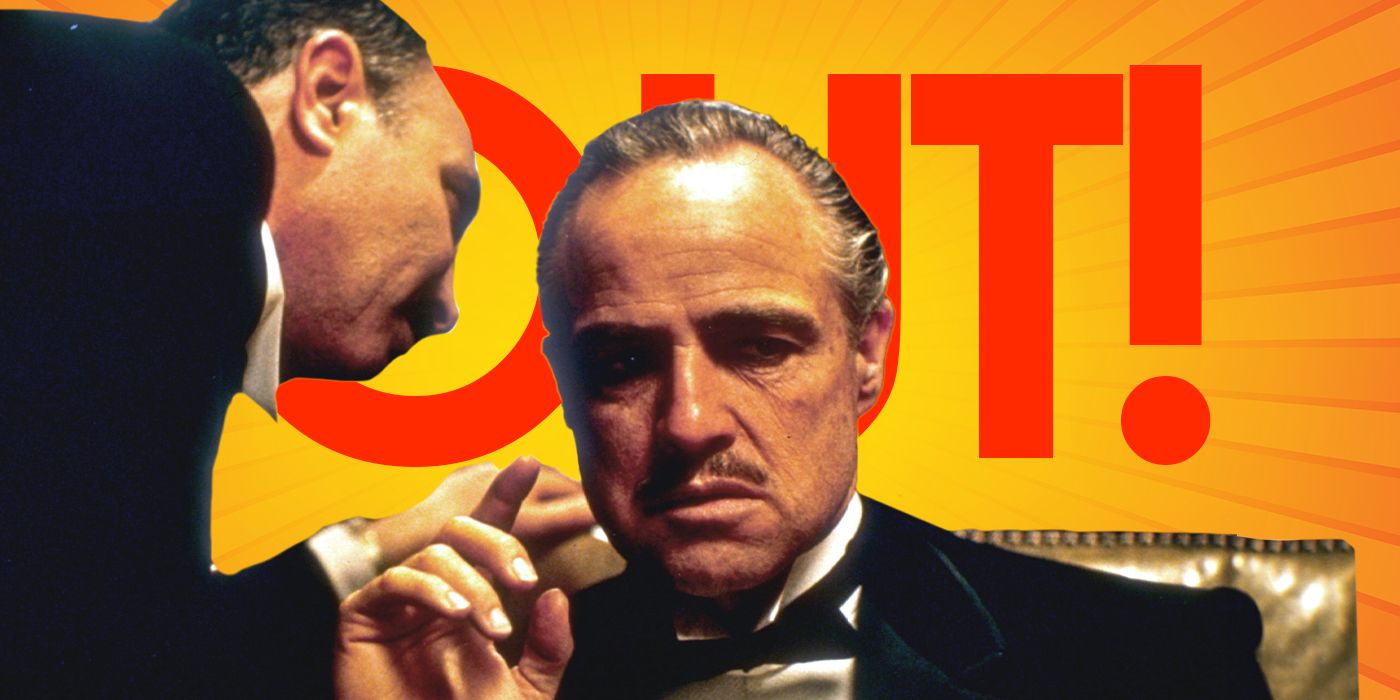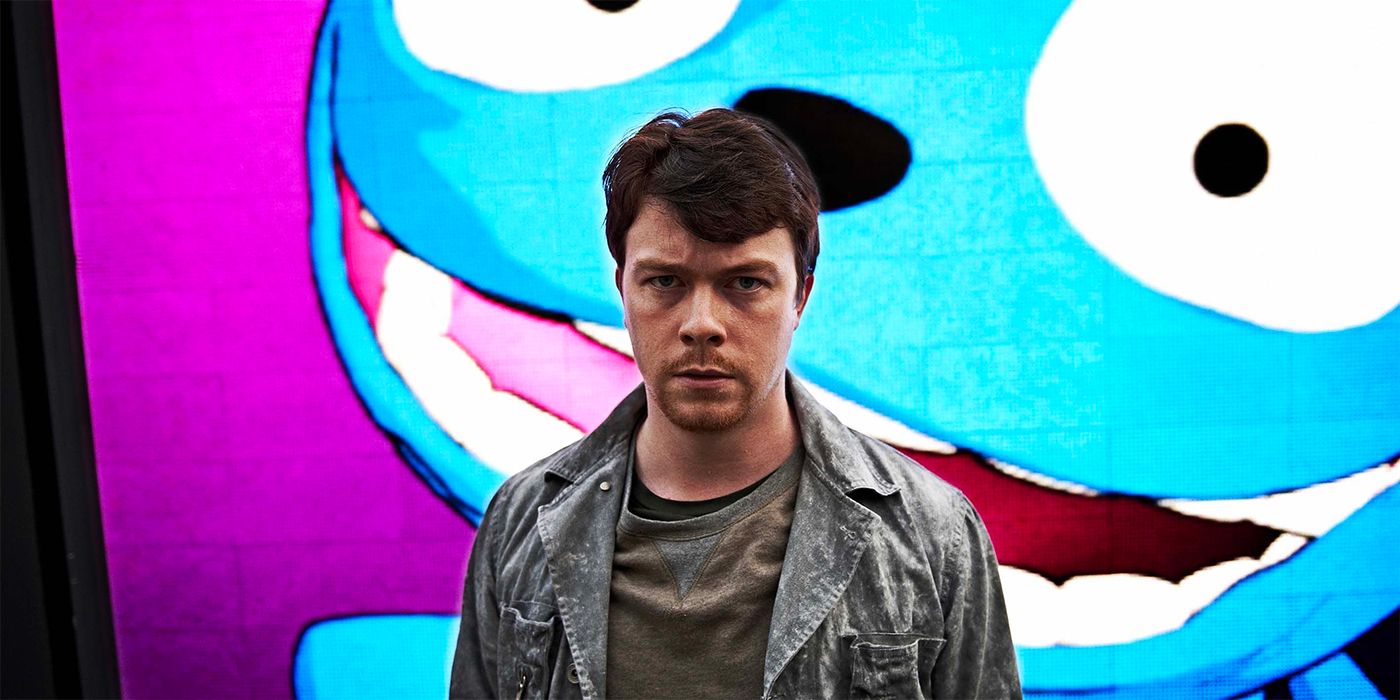Editor’s Note: The following contains Cassandro spoilers.
The Big Picture
- Perla de la Rosa delivers a stunning performance as Yocasta in Cassandro, embodying both her character’s maternal love and emotional complexity.
- De la Rosa effectively expresses Yocasta’s affection and concern for her son, Saúl, through her interactions and reactions throughout the film.
- Yocasta’s confidence and boldness serve as inspiration for Saúl’s larger-than-life persona, brilliantly portrayed by de la Rosa. Her performance deserves recognition during Awards Season.
For his performance as Saúl Armendáriz in Roger Ross Williams’s Cassandro, Gael García Bernal is getting deservedly rave reviews. The film centers on the regional exótico luchador (comparable to drag) who rises to fame by breaking boundaries in the sport for gay wrestlers. Bernal perfectly captures the exuberance of his character and pulls off the difficult task of bringing not only Armendáriz to life but also Armendáriz’s heightened luchador persona, Cassandro. As Collider’s Ross Bonaime notes in his review, Bernal joyously and electrically captures both facets of his character. Bernal’s performance only works so well, though, because of his most important scene partner, Perla de la Rosa.
Perla de la Rosa plays Yocasta, Saúl’s mother, who is both his best friend and the inspiration for his luchador character in Cassandro. Though the film is primarily about Saúl’s lucha libre career, the relationship between Saúl and his mother is the heart of the film, thanks to de la Rosa’s stunning performance.
Perla de la Rosa Perfectly Captures Yocasta’s Maternal Love in ‘Cassandro’
In Cassandro, the first interaction between Yocasta and Saúl takes place as the two characters watch television and prepare laundry. De la Rosa’s interactions with Bernal in this scene beautifully communicate Yocasta’s care for her son. When Saúl cracks a joke about one of the characters on television, Yocasta lovingly laughs at his sense of humor. De la Rosa plays this moment with a wide smile and pats the stack of clothes in front of her. Her beaming smile expresses her character’s joyfulness, and the patting of the clothes demonstrates that this joy moves through her whole body. When Saúl tells her he needs to finish mending the clothes before they make their route, Yocasta tells her son that she is proud of his work ethic and that he will make a man happy one day. De la Rosa delivers these lines with such a tender tone that her character’s supportive affection for her son radiates off the screen.
De la Rosa also perfectly matches her affection for her son with authentic concern. The morning after Saúl’s first match as Cassandro, he finds his mother working on the laundry. Yocasta, somewhat ignoring Saúl, is upset about his public debut as an exótico, for which she has been receiving phone calls all morning. De la Rosa expertly expresses her character’s frustration in her handling of the scene’s props. Rather than the care she gave to the laundry in the previous scene, de la Rosa handled the garments with aggression, tossing clothing from machine to basket with force. Yocasta looks at Saúl and asks what his father (who stopped engaging with them after Saúl came out of the closet) is going to say about his luchador persona. Saúl leaves the space, upset at her reaction, to which Yocasta asks if Saúl remembers “what they did to Silvia’s son.” In this interaction, de la Rosa authentically balances multiple layers of her character’s emotions. In her second line, she balances her resentment with genuine concern for his safety, as she delivers it with a vocal strain that expresses how hard it is for Yocasta to think about her son being harmed. Through de la Rosa’s powerful performance, she captures the genuine blend of affection and concern that many parents of gay children experience – one that the best queer movies and tv shows portray.
This blend is beautifully communicated during the first Cassandro fight Yocasta attends. As Saúl makes his entrance as Cassandro, an audience member just behind Yocasta calls him a slur. Yocasta responds quickly by hitting him with her purse and yelling, “That’s my son!” De la Rosa plays this moment with a defensive rage, delivering her line with assertive command. Throughout the rest of the fight, the camera cuts to Yocasta’s reactions. Nearly every shot finds de la Rosa with her hands over her mouth, demonstrating the character’s anxiety. Then, after Cassandro wins the match, Yocasta beams with pride, which de la Rosa expresses through tear-filled eyes and a slow clap that demonstrates her relief. Even in moments with no dialogue, de la Rosa perfectly captures the character’s maternal love.
Perla de la Rosa adds emotional complexity to her character even beyond the registers of her character’s maternalism. This first occurs when Saúl and Yocasta deliver finished laundry to their customers. Yocasta approaches a pair of housekeepers with the home’s laundry and attempts to get to know the two women who are receiving the clothes. However, the younger housekeeper refuses to engage which causes Yocasta to note how nasty the older housekeeper has been to her. Here, de la Rosa demonstrates her character’s defensiveness and assertive instincts. Though she approaches the housekeepers with a smile and friendly tone, her expression quickly shifts when she calls out the older woman. Between her slow approach and the locking of her glare on the older housekeeper, as she confronts her, de la Rosa demonstrates there is an interior wrath to Yocasta that can make an appearance when needed. De la Rosa’s performance in this scene establishes Yocasta’s register of deeply felt and shifting emotions.
How Does Perla de la Rosa’s Portray Yocasta’s Broken Heart in ‘Cassandro’?
The layers of Yocasta’s emotions are expanded in the first scene where she watches her ex-lover from afar. Saúl and Yocasta park their car at a baseball diamond, where her former lover and Saúl’s father, Eduardo (Robert Salas), is. From a distance just far enough that Eduardo will not notice them, Yocasta looks out the window and notes all the similarities between him and Saúl. With her head resting against her hand, de la Rosa captures her character’s longing for her former lover. From the tender delivery of her lines to her expressive eyes, welling up with tears, de la Rosa articulates her character’s continuing love for Eduardo. Then, in contrast to the support for her son seen so far, Yocasta tells Saúl that Eduardo would still be with them if Saúl had listened to her (suggesting she told him not to come out to his father). De la Rosa manages to deliver this line without cruelty or anger, only the soft resentment that rises up in her character as she looks at the man she loves.
The second time Saúl and Yocasta watch Eduardo from afar is the start of de la Rosa’s most powerfully acted sequence in the film. First, as Yocasta watches Eduardo while crying, de la Rosa again rests her hand on her hand, longingly looking into the distance, continually wiping tears from her face. Saúl tells Yocasta they are going somewhere else, to which Yocasta initially resists. As they drive through the neighborhood, Yocasta points out the different houses for which she does laundry and gossips about her customers. In this scene, de la Rosa joyfully delivers each of her lines through tears. By only her vocality, it is clear that she is using this gossip as a means to break through her forlorn longing. Saúl and Yocasta arrive at a house he intends to buy for them, and the two take a swim in the pool. Yocasta looks into the sky, then to Saúl, caresses his head, and tells him he is going bald. De la Rosa pulls off this string of emotions effortlessly. First, her expressive eyes as she looks into the sky communicate her character’s joyful response to the fantasy of home. Second, de la Rosa’s loving look at her son, and then gentle caressing of his head expresses her character’s deeply felt maternal love. Third, the way she delivers her line about his baldness comes across so naturally and without judgment that it truly feels like an authentic remark from mother to son.
Why Does Perla de la Rosa’s Bold ‘Cassandro’ Performance Stand Out?
Yocasta’s most significant narrative contribution to the film is serving as Saúl’s inspiration for the Cassandro character. She primarily inspires him because of her confidence. As Yocasta gets ready for a night out, Saúl sketches a costume for his forthcoming debut of Cassandro. When Saúl gets up to help Yocasta finish dressing, she looks into the mirror and admires herself. De la Rosa expresses this self-admiration by keeping her head raised and tilted as if the mirror were a camera at a photo shoot. After finishing her preparation, Yocasta briefly shows off her look for Saúl. De la Rosa performs this moment with a cheeky spin and a pop of the knee that communicates just how good she knows she looks. De la Rosa’s bravado in the scenes makes it incredibly believable that she is the inspiration for Saúl’s larger-than-life persona. Hopefully, de la Rosa’s performance of boldness translates to audiences considering her bold performance. If Cassandro has any chance of fighting its way past its early limited and streaming release toward Awards Season glory, one can only hope that voters remember to consider the film’s breakthrough knockout performance by Perla de la Rosa.


